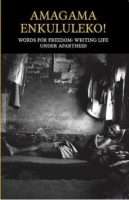It’s early Saturday morning and I leave Ruschka at home because I sense that today is going to be hard. Reaching Bonteheuwel, a sprawling township on the Cape Flats, takes less than twenty minutes from my home in Wynberg. I park my car on the sandy sidewalk and walk towards the small council house belonging to Ivy Kriel. Activists are dotted all along the fence in front of the house and in the small barren space meant for a garden, now filled with plastic chairs. I pass through them, nodding a silent greeting which they return. Those who are speaking to one another are whispering.
I join the line of family members as they slowly file past the body. Ashley Kriel is lying flat on his back in the coffin in the middle of the tiny room. There is barely space to move. And then I see his face. I look but cannot see. Yet, I do see. His forehead is swollen. His eyes are closed. A deep gash leaping out of his forehead has been stitched up by the coroner. The dark curls are brushed back. In that split second, my eyes blur and I feel my knees bending. A sharp pain shoots through my chest. A comrade hoists me up under my arms, steadying me. I am helped up the narrow steps to a bedroom upstairs where I find Ashley’s sister Melanie. We are both crying.
I know that I had to look at him some time. I was reluctant because I wanted to remember him as I knew him. But it would have been strange for me not to be part of the family ritual. Melanie, unlike her sister Michelle, is unable to function. While twenty-four-year-old Michelle is in the kitchen below helping visitors to the family home, her sister, sedated the night before, cannot stop crying.
It was Michelle who had called me a week ago at UWC and given me the news: “Zubeida, the police have shot Ashley. They took me to see his body in the morgue this afternoon. Please tell everybody.” I became icy cold. As if a winter chill had descended on my office. I cut out, suppressing all emotions.
‘’Where is your mother? Don’t worry. I’ll be there as soon as I can.”
I had left work immediately, thinking about the need to form a funeral committee, finding lawyers to investigate the killing, raising the money to help the family. There was no time to deal with emotions. Organising often became a way of coping with horrors that we dealt with daily. We had to be strong for the family, for the community, hiding how completely shattered we were.
I was aware that Ashley had left the country about a year after his final school exams. Some had tried to dissuade him but he was angry. He and his friends in Bonteheuwel were shot at with birdshot and beaten whenever they tried to organise meetings at their school. He wanted to be equipped to fight back and had decided the only way was to be armed himself. He left the country at the end of 1985 and joined the military wing of the ANC, Umkhonto we Sizwe.
I regret now that I looked at his face this morning. Unknown to many of us, he was sent back after being trained and had been living at a house in Hazendal, a small working class, Coloured suburb near Athlone. I would have preferred remembering him as I knew him.
I used to watch him closely when he arose to address the crowds at meetings of the United Democratic Front. I was never quite sure whether it was his political rhetoric or his personal charisma that set the crowd off. “Viva Ashley, Viva! Long live, long live!”
“Igama lama Ashley Kriel, Malibongwe.
Igama lama Ashley Kriel, malibongwe.”
(The name of Ashley Kriel, let it be praised.
The name of Ashley Kriel, let it be praised.)
He had this way of raising his arm alongside his ear when he shouted: “Amandla!” (Power!). To which the crowd responded tumultuously: “Ngawethu!” (To the people!) All speakers ended their speeches with these words. But not all raised their right arm as Ashley did. Some right arms were pushed forward diagonally with their fists clenched. Other arms were bent at the elbow at a kind of right angle to the shoulder. Ashley’s arm was always straight in the air with four fingers clenched in a fist and the thumb extended, the ANC’s power salute.
The extension of his arm elongated his body, giving him a new kind of height which added a further dimension to his defiant words. I could see the young women comrades in the audience tantalised by his charm. Although the sexual appeal would have been dominant amongst the women, he had his male admirers too. The combination of personal charm and political commitment made him a youth leader of great attraction.
He was the Che Guevara of the Cape Flats. Long, tapered face with a mop of curly black hair. A lean, slender body dressed in khaki shirt and black beret. We were all proud, very proud of him.


